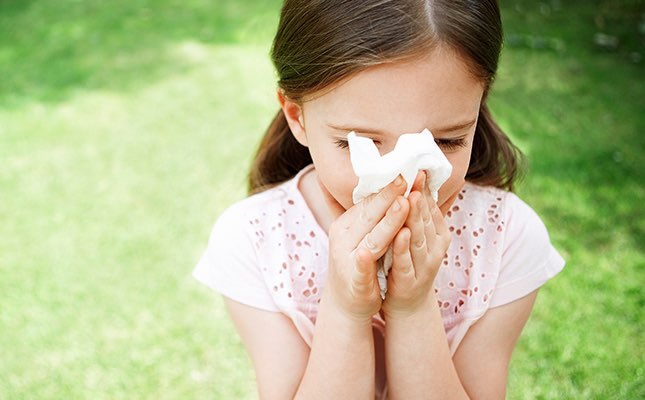Protect Your Children from a Dangerous Respiratory Viral Infection Called Enterovirus D68
A serious respiratory viral infection is afflicting children across the country and is likely to become a nationwide problem. The U.S. Centers for Disease Control and Prevention (CDC) have identified it as a rare respiratory virus called enterovirus D68 (EV-D68). It is related to the rhinovirus, which is the cause of the common cold. Doctors are unsure about the way the virus is spread, but the fact that it afflicts children makes it extremely worrisome, especially with children back in school where germs and illnesses are easily spread. Since health officials are unsure about how widespread or serious this infection could become, MD Now believes that it’s important for parents to know about enterovirus D68 and be aware of its symptoms, treatments, and prevention. All of these aspects are addressed below, but be assured that MD Now is ready and able to provide the necessary care and respiratory infection treatment when it’s needed the most.
Insight on Outbreaks
More than 1,000 children from the ages of six weeks to 16 years old have been sickened by the respiratory viral infection. This is believed to be a very conservative statistic since Children’s Hospital Colorado saw more than 900 pediatric patients with symptoms of the respiratory virus in the emergency room from mid-August to early September. And 86 of those children were admitted into the hospital, with some being placed in the intensive care unit in need of emergency breathing tubes. The CDC confirms that at least 10 states have reported suspected outbreaks, including:
- Georgia
- North Carolina
- Kentucky
- Kansas
- Oklahoma
- Missouri
- Illinois
- Ohio
- Iowa
- Colorado
Inside the Respiratory Infection Symptoms
Doctors say that the respiratory viral infection usually begins like the common cold. The first viral infection symptoms in children include:
- Runny nose
- Sneezing
- Coughing
- Difficulty breathing
- Wheezing
But the illness can intensify quickly and become similar to a severe cold. Since most of the symptoms are upper respiratory, they can trigger asthma or lead to pneumonia, which is why enterovirus D68 is particularly threatening for children with a history of asthma. Additional symptoms may includefever and diarrhea. If parents notice any of these symptoms in their children, it is important to take the child for a medical evaluation immediately.
Instructions for Prevention and Protection
To avoid spreading and catching the respiratory viral infection, the CDC recommends maintaining good hygiene and following general sanitary practices, such as:
- Washing hands with soap and water for at least 20 seconds on a regular basis, especially after coming in contact with someone who is sick.
- Avoiding or limiting exposure to others who are sick.
- Covering the nose and mouth when sneezing and coughing.
- Keeping asthmatic children’s inhalers easily accessible.
- Having a treatment plan in place for asthmatic children.
- Noticing any respiratory infection symptoms in children, especially those who are very young or have asthma.
- Seeking immediate medical care and enterovirus treatment for children with any respiratory infection symptoms.
Information on Enterovirus Treatment
Health officials recommend that any child or adult with flu-like symptoms or common cold symptoms be evaluated by a doctor to avoid any respiratory complications. Luckily, while enterovirus D68 can be extremely serious, doctors believe that most children will only end up with a common cold due to the virus. And all of the children affected have made a full recovery after receiving the proper respiratory infection treatment. In fact, doctors say that the vast majority of children were stabilized within 24 hours, while the children hospitalized went home in four to five days. But the key to this rapid recovery has been prompt and proper treatment.
Parents, if you notice any respiratory infection symptoms in your child, take the child for a medical evaluation. Rather than wait for a doctor’s appointment, or spend many hours and dollars in an emergency room, head to your nearby MD Now for immediate and convenient care. MD Now can check your child for signs of the respiratory viral infection, and then provide any necessary enterovirus treatment to get your child on the road to recovery.
MD Now Urgent Care centers provide the treatment you need when you can’t afford to wait. All of our locations are open convenient hours, and operate on a walk-in, no-appointment basis to easily suit any schedule. With locations throughout Palm Beach, Broward, and Miami-Dade counties, quality care is always in reach. For the Florida locations nearest you, visit https://dev-www-mymdnow-com.mdgadvertising.com/locations.
To learn more about our urgent care centers, call 888-MDNow-911 or visit www.MDNow.com.
MD Now® Urgent Care Walk-In Medical Centers is the leading provider of fast and affordable urgent care to adults and children in Palm Beach, Broward, and Miami-Dade counties. Our state-of-the-art, walk-in medical centers are open seven days a week to deliver an affordable and convenient alternative to long emergency room wait times and the limited hours of family physicians. No appointment is necessary and major insurance plans are accepted. In addition to providing a comprehensive range of urgent care services to treat a variety of illnesses and injuries, our multiple locations offer digital x-rays, EKG, lab testing, physicals, immunizations, vaccines, occupational medicine, travel medicine and selected primary care services. Find the medical care you need with the convenience you want at MD Now. Call: 888-MDNow-911, online: www.MDNow.com.

